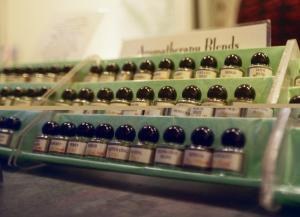
Alternative, complementary and traditional medicine and HIV
Alternative and complementary medicine is quite popular among people living with HIV. Many HIV positive people say they feel better after using alternative and complementary medicine, and it is likely that some of these treatments are indeed beneficial, although unproven according to conventional Western medicine.
What are these therapies used for? In relation to HIV, alternative therapies are most commonly used in areas where it is difficult to access Western medicine. In the absence of antiretroviral treatment, people seek other ways to delay the onset of AIDS, or to treat opportunistic infections. In sub-Saharan Africa, for example, traditional healers outnumber medically qualified doctors eighty-to-one. Traditional healers also usually provide immediate treatment, whereas clinics may have lengthy waiting lists and tests for eligibility.
African traditional healers and HIV: Sub-Saharan Africa is the region worst affected by AIDS; it is also a region in which most people turn first to traditional healers when they fall ill. There is potential for traditional healers to play an important role in responding to the epidemic. Although few have been scientifically tested, there can be little doubt that some of the remedies given by traditional healers are effective in treating HIV-related opportunistic infections and drug side effects. However, in common with all forms of medicine, these therapies may also do harm through side effects, drug interactions, or delaying use of conventional treatment. In addition, the reuse of implements for rituals such as scarification, tattooing and circumcision can transmit infections, including HIV. Some African healers blame illness on witchcraft, which can lead to ostracism of those accused.
Collaboration between traditional healers and Western doctors has the potential to improve safety, for example by encouraging better hygiene. Training can also assist traditional healers in identifying illnesses beyond their capacity to treat, hastening referral to a clinic when necessary.
Traditional healers are respected within their communities, and know how to convey health information in a culturally appropriate manner. They are ideally placed to teach HIV prevention, distribute condoms, conduct counselling, encourage HIV testing, and set up support groups for affected people.
Yet although traditional healers are generally eager to learn from other health workers, experience has shown it is not easy to establish successful collaboration. Traditional theories of disease causation are very different to those of Western science. Traditional healers suppressed during the colonial era, and often demonised in the media are understandably suspicious of authority. Many are reluctant to reveal details of their remedies for fear that their ideas will be stolen. Likewise, conventional doctors are inclined to be prejudiced against treatments that lack scientific foundation.
The AVERT website provides a good overview and recent links:
